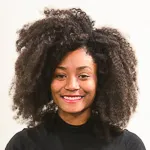When I heard of Baltimore state attorney Marilyn Mosby’s decision to prosecute the officers involved in the Freddie Gray killing, my heart swelled with pride and awe. I interpreted this bold move as an answer to the cries for justice against police brutality, and I said it was a victory.
I made this claim to my friend as I watched the news report on the television screen, and he said, “This is a victory, but people should be prosecuted if they kill someone. A real victory would be Freddie Gray still living among us. Death and prosecution should never be all we want.”
I was immediately taken back to the talk I heard by Professor Angela Davis, a prolific philosopher, scholar and prison abolitionist.
“Police violence — racist violence — is part of an economy of violence… [we] can’t adequately address violence by pointing to individual officers and pointing to prosecution. What if Darren Wilson had been prosecuted? What difference would that have made?”
Michael Brown’s body was still left in the street for four hours. Tamir Rice still will not reach 15. Eric Garner’s children still do not have a father. Miriam Carey’s daughter still will not have her mother there for her fifth birthday. Aiyana Jones still won’t experience puberty. Killed at age 92, Kathryn Johnson still will not be able to die a natural death.
While accountability needs to happen, they are still dead, and no prison sentence will bring them back.
In “Women, Culture, and Politics,” Dr. Davis states, “Radical simply means grasping things at the root.” At the very root, violence is embedded in our culture. It is in the movies we watch. The video games we play. The language we speak. We even tell little girls that if a little boy is mean to her and hits her, he likes her.
The violence our culture produces is felt at all levels. In “Arrested Justice: Black Women, Violence, and America’s Prison Nation,” Beth Richie claims that Black women experience violence in the intimate household, from the community, from the media and from the state. Confronting just one of these sectors will not lead to the holistic liberation of Black women. It will aid in some sense, but full liberation takes the acknowledgment of all violence as a problem.
In a similar vein, demanding for the arrest of police officers who kill Black people is a great first step, but it should not be our end goal. We should not be satisfied with putting people in jail when at the end of the day there is still someone missing at birthdays, holidays and Saturday mornings. Our victory will be won when the violence ceases.
So, what does that look like? What does true liberation from violence really mean?
I don’t have an answer because I never knew that was an option. As a student in Davis’ course, I am being pushed to imagine what I want my own liberation to be. As a prison abolitionist, she knows that a world without prisons cannot exist in the state the world is in now. It will take a complete societal transformation, in addition to the disengagement of crime and punishment. She stated, we must demand what we really want through our activism, not just what we think we can get.
I want a world without state-sanctioned killings, not just police officers’ indictments. I want to be able to walk around at night without the the threat of imminent rape, not just the guarantee that my rapist will be prosecuted. I want healing from sexual abuse, not just a trial. I want to be able to imagine what the world would be without prisons because I have faith in the humanity of others. I have faith that the world can be better than this. I have faith that everyone can be taken care of, and given the option to live a life full of freedom.
I will acknowledge this victory of prosecution for now, but after this, I want more. I can only be fine with punishment for death for so long. Davis told me to imagine, and I am trying. I think everyone should do so, too.
I stand in solidarity with Prosecutor Mosby, and I admire her bravery and tenacity. But this lump in my throat tells me, I would rather have Freddie Gray still be alive.
Contact Mysia Anderson at mysia ‘at’ stanford.edu.
